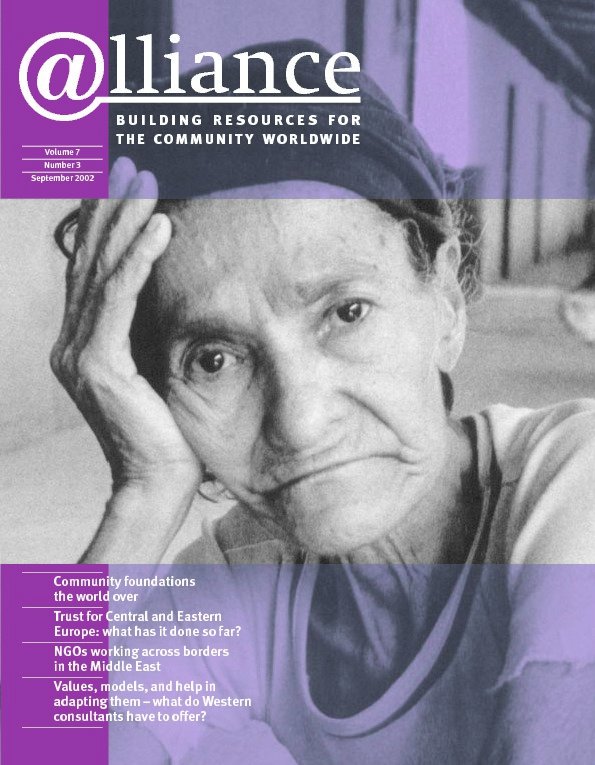The Siberia Advisory Board
The Global Greengrants Fund has supported small, grassroots projects in Siberia and the Russian Far East since 1995. Working with an Advisory Board made up of leading environmentalists, GGF can identify small grassroots groups who can use modest support – often seed money – to accomplish amazing things.
The Siberia Advisory Board chooses ‘themes’ for each grant round and seeks out grassroots organizations that cannot find funding elsewhere. During recent grant rounds the Board has focused on supporting university student initiatives and natural resource monitoring – two areas that are not well supported by other foundations.
The fact that GGF does not have a bureaucratic grant review process allows Advisory Board members to play a significant role in grantmaking. The Board relies on individual Board members to recommend and review proposals from their region. The Board is made up of leading grassroots environmentalists, so these members are ideally placed to provide solid recommendations about the advantages and disadvantages of various proposals. During the course of the grant, each grantee can then work with the Advisory Board member from his or her region, who can provide advice as needed on how best to implement the project.
The final factor in the equation is Pacific Environment, a California-based non-profit with extensive experience of working on environmental issues in Siberia and the Russian Far East. None of the American staff at GGF speak Russian and none of the Russian advisers speak English, so Pacific Environment translates between the two. It also facilitates debates among the advisers, and helps advisers and grantees understand the needs of American grantmakers in terms of meeting US tax requirements.
In the long run, the collaboration of Russian advisers, Pacific Environment and GGF has been a key element in seeding the environmental movement in Siberia and the Russian Far East. Many GGF grant recipients have gone on to grow their organizations and receive much larger grants from other funders. Most importantly, GGF grants give hope and support to grassroots environmental activists.
David Gordon is Director of Programs at Pacific Environment at Oakland, California. He is an adviser to Global Greengrants Funds and facilitates grantmaking processes in Siberia and China. He can be contacted by email at dkgordon@igc.org
One grantee’s account
BARS was formed just over two years ago by a group of students from the Wildlife Biology Department at the Russian Far East State Agrarian University. The impetus was a growing realization of the alarming environmental damage that was occurring in the Amur Region of the Russian Far East. What they saw was extraordinary taiga ecosystems increasingly under siege, with illicit hunting, fishing and logging ubiquitous throughout the region.
BARS was formed as a chapter of the Druzhina Student Nature Protection Corps. Currently, we have 76 student members, approximately half of whom are officially recognized as environmental inspectors.
BARS focuses on developing effective new methods in environmental education and in the fight against poaching. We also prepare young professionals to work in nature protection institutions such as nature preserves. BARS members can be found at work in the field throughout the year, conducting inventories of various mammals and patrolling to prevent violations of hunting, forestry and environmental legislation. This has resulted in 33 raids being undertaken in the Amur Region in 1999, leading to the drafting of 19 protocols on poaching and the seizure of six hunting guns and 4,500 metres of fishing net. People throughout the Region have begun to regard BARS as an authority in the field of nature protection. Many people now tell us about violations of environmental legislation, and regional government officials have started to summon BARS groups for joint raid work more often.
A grant of US$3,000 from the Global Greengrants Fund was the first funding we received. It was made on the recommendation of Igor Sakovich, Director of the Amur-Batyushka Environmental Education Centre and a member of the GGF Advisory Board in Siberia. Without this funding from GGF, it is likely that BARS would have remained an informal student club at the university, meeting every few weeks to discuss general environmental issues.
Svetlana I Titova is the coordinator of BARS and the Director of the Amur Socio-Ecological Union. This piece is adapted from an article originally published in Russian Conservation News, Summer 2000. She can be contacted by email at amurseu@tsl.ru


Comments (2)
I sure would like to get involved with this
does GGF assist people from the Caribbean